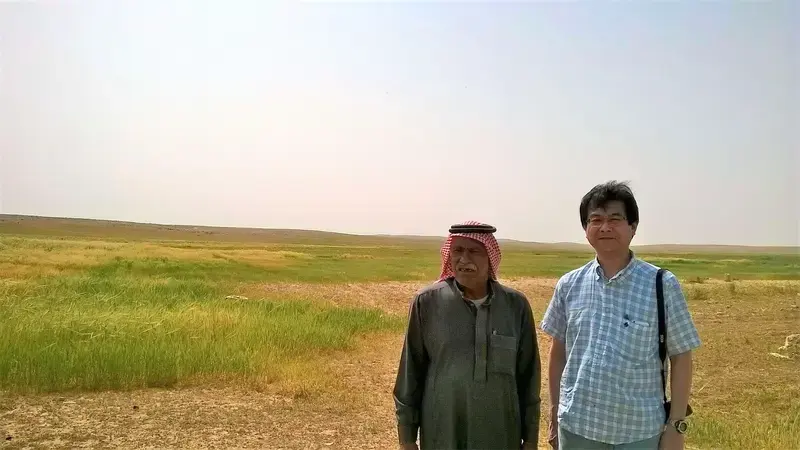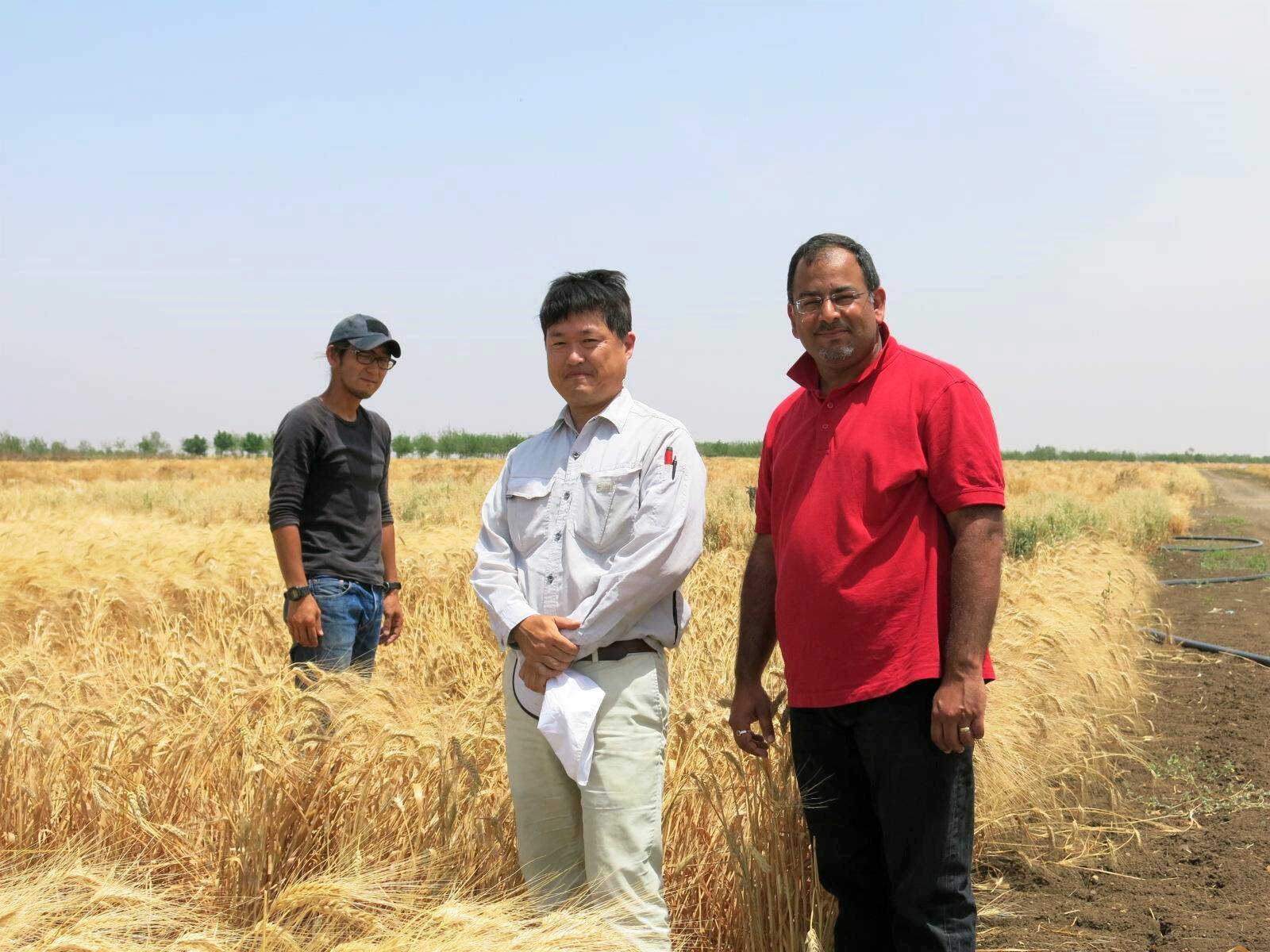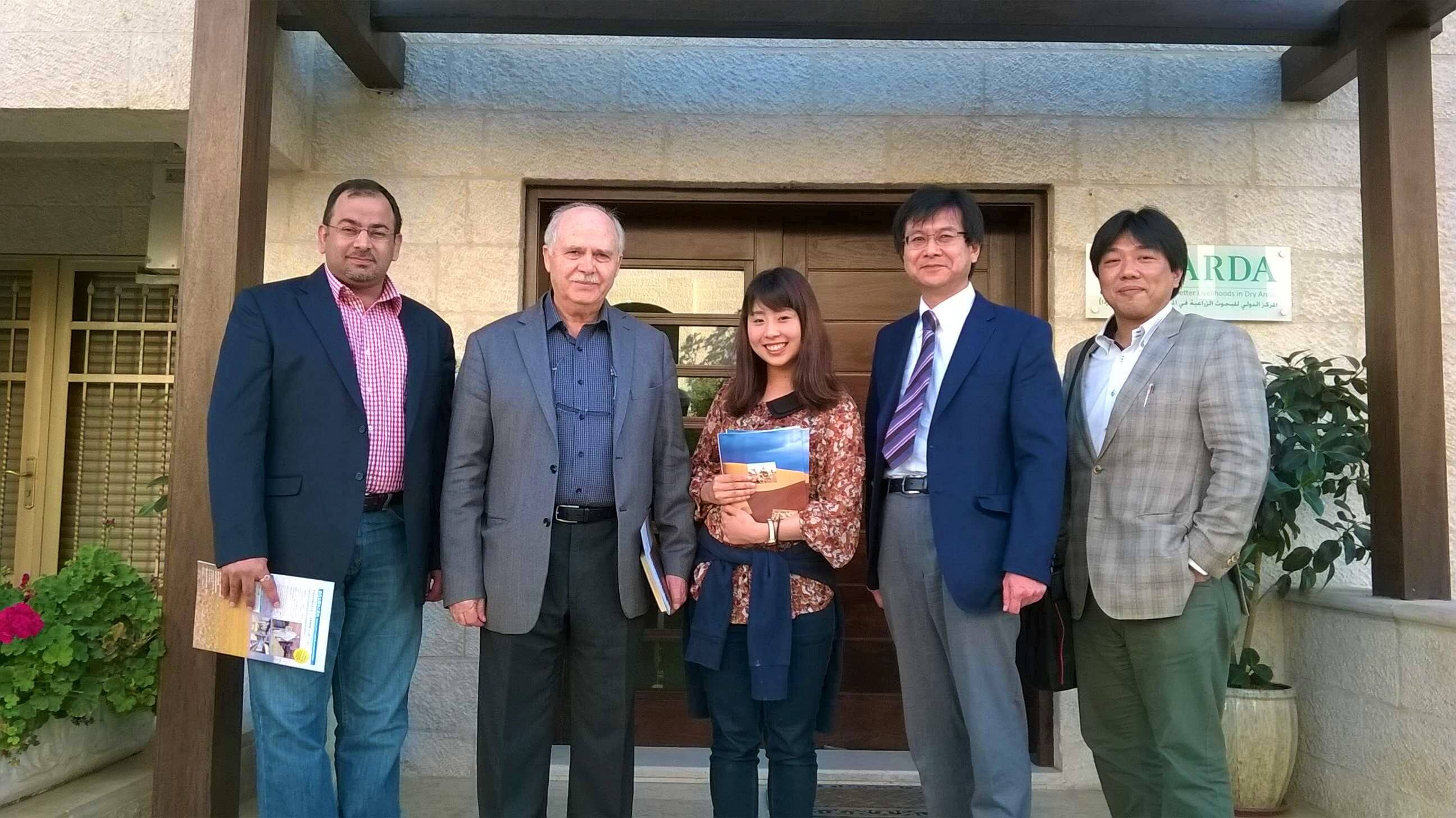ICARDA and Japan: Decades of Scientific Partnership

To celebrate the 50th anniversary of CGIAR, the Japanese Agricultural Research Quarterly journal (JIRCAS) published a special issue describing the long and productive scientific collaboration between CGIAR and Japanese scientists and universities in early December 2021.
It includes a review article on their work with ICARDA on dryland farming approaches. ICARDA and Japan work primarily on solutions to alleviate water and land scarcity across the drylands of West Asia and the Middle East.
The review article, ‘Managing Scarce Water Resources in the Drylands of West Asia and North Africa: Review of Joint Research between ICARDA and Japanese Researchers,’ highlights collaborative research on irrigated, rainfed, or agro-pastoral systems.
Optimizing water productivity in agriculture is one of the region’s top priorities under climate change. Japan and ICARDA research this in the semi-arid areas of West Asia and North Africa primarily through supplementary irrigation packages in rainfed contexts and micro catchment rainwater harvesting technology, to rehabilitate degraded rangelands.
The JIRCAS special issue includes 14 review papers showcasing five decades of scientific partnership between Japan and CGIAR’s International Agricultural Research Centers.

Since 1972, Japan has been a member of CGIAR and has contributed cutting-edge scientific expertise and funding to achieve a world without hunger.
Japanese scientists and ICARDA experts have worked hand in hand to advance adaptation technologies on the soil-water-plant relationships and made strides to combat water scarcity and land degradation in the world’s drylands.
“Together, we provide real-life solutions that work to support CGIAR’s vital mission to unlock a world free of poverty, hunger, and environmental degradation,” said Dr. Vinay Nangia, ICARDA’s Team Leader in Soils, Waters, and Agronomy and one of the review's co-author.
In the new era of OneCGIAR, Japan and ICARDA should preserve and enhance their collaboration to tackle the ongoing and future challenges to food security in the drylands.

